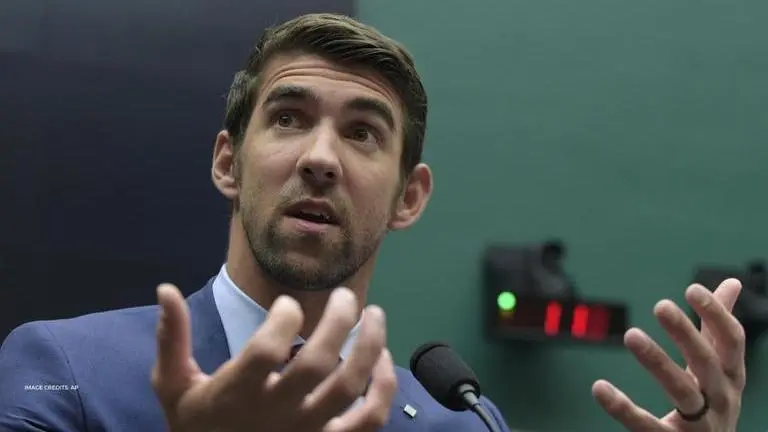Updated 30 July 2020 at 11:39 IST
Michael Phelps documentary sheds light on dark side of legendary athlete's Olympic journey
Michael Phelps' documentary, The Weight of Gold, explored the dark side of athletes' Olympic journey and their struggles with depression.
- SportFit
- 3 min read

The most decorated Olympian of all time, Michael Phelps, shed light on the dark side of an athlete's life in a documentary exploring the mental health struggles he and several others faced. Phelps serves as the executive producer and narrator of his documentary, The Weight of Gold, which premiered Wednesday, July 29 on HBO. In addition to exploring Phelps' mental health struggles during his prime, the hour-long film featured several high-profile athletes like track star Lolo Jones, skier Bode Miller, snowboarder Shaun White and figure skaters Sasha Cohen and Gracie Gold - each of the athletes shared the various struggles they faced during their career. As a unified attempt, Michael Phelps' documentary served a wake-up call to the U.S. Olympic and Paralympic Committee and the other federations.
The Weight of Gold sheds light on "post-Olympic depression"
Through various interviews, the documentary explored the magnitude of mental stress the players go through during their rigorous training routines. Most athletes dedicate the better part of their lives to hone their skills for that one moment to shine on the international stage.
Phelps admitted in the documentary that it is okay for athletes to suffer from mental stress. However, the 23-time Olympic gold medallist said the lack of support (or rather concern) from the US Olympic committee and other respective federations means the recovery process to come out of such stress becomes increasingly difficult for any athlete.
Advertisement
Suicidal thoughts become common when an athlete or any person is suffering from a serious case of depression. The Weight of Gold also featured an interview from Olympic bobsledder Steven Holcomb in 2017. Holcomb was interviewed just months before his death, which according to the autopsy was caused due to heavy intoxication of alcohol and sleeping pills. Holcomb was found dead in his room at the U.S. Olympic Training Center in Lake Placid, NY.
Advertisement
One of Holcomb's best friend, skeleton athlete Katie Uhlaender, described finding Holcomb in his room. Uhlaender even recalled one of her own incidents where she was denied permission to return to her dying father while the team was travelling around the world for competitions.
"I thought of myself as just a swimmer and not a human being,' Michael Phelps said in the documentary. "Nobody who is going to expend that kind of effort, to achieve that kind of goal, is going to be just like everybody else. So when it's over, it's no surprise that many would suffer what the film calls the 'post-Olympic blues." The retired swimmer even claimed as high as 80% of the athletes go through 'post-Olympic depression.'
Shaun White, who has won three gold medals for snowboarding said in the documentary that it felt like a "dramatic emptiness" after every Olympics - "win or lose." White said after the Olympics nothing really matters... there's "this incredible crash."
Michael Phelps, one of the best athletes of the generation, has been relatively candid about his struggles with depression and attention deficit hyperactivity disorder (ADHD) since he first opened up in 2018. Phelps even admitted that he contemplated suicide after the 2012 London Olympics.
Also Read | First Indian Athlete To Compete Amid COVID-19 Pandemic, Srabani Aims For Second Olympics
(Image Credits: AP)
Published By : Sujay Chakraborty
Published On: 30 July 2020 at 11:39 IST
